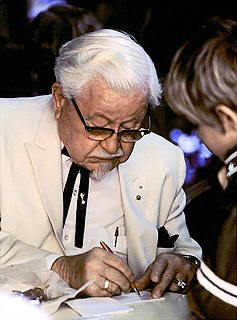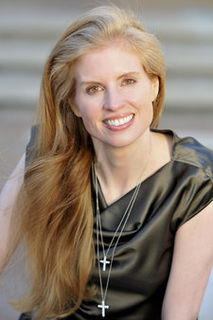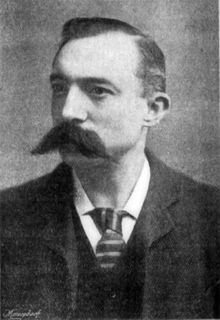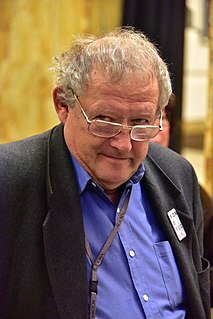A Quote by Salman Rushdie
I was 21 in 1968, so I'm as much a child of the '60s as is possible to be. In those years the subject of religion had really almost disappeared; the idea that religion was going to be a major force in the life of our societies, in the West anyway, would have seemed absurd in 1968.
Related Quotes
'2001' is a really interesting movie because it came out in 1968, and everybody thought that that was possible, and look how ridiculous that was. We don't have ships like that, and you know, nobody in 1968 was going, 'Oh, that'll never happen!' But of course it never happened. We're not even close to it.
In 1968, 'Liberty Magazine' had an article about George Wallace in which he stated he would suggest me as a possible vice-presidential candidate, along with other choices such as 'Happy' Chandler and General Curtis LeMay. However, I am not interested in any political office in the United States or anywhere, now or back in 1968.
Which other major religion is based on the Godhead incarnate being whipped, tacked to a cross, stabbed? Only the Marquis de Sade could have made up a sicker religion. It's no wonder that those brought up in such a culture hate life and enjoy inflicting pain. All societies are sick but some are sicker than others. Christian societies are certainly the sickest.
Religion is a complex and often contradictory force in our world. It fosters hope and comfort but also doubt and guilt. It creates both community and exclusion. It brings societies together around shared belief and tears them apart through war. However, what unites the faithful, whatever their religion, is the unshakeable force of generosity.
Religion is an important institution. A nation without religion cannot survive. Yet it is also very important to note that religion is a link between Allah and the individual believer. The brokerage of the pious cannot be permitted. Those who use religion for their own benefit are detestable. We are against such a situation and will not allow it. Those who use religion in such a manner have fooled our people; it is against just such people that we have fought and will continue to fight. Know that whatever conforms to reason, logic, and the advantages and needs of our people conforms equally to Islam. If our religion did not conform to reason and logic, it would not be the perfect religion, the final religion.
Religion comes from the period of human prehistory where nobody - not even the mighty Democritus who concluded that all matter was made from atoms - had the smallest idea of what was going on. It comes from the bawling and fearful infancy of our species, and is a babyish attempt to meet our inescapable demand for knowledge. Today the least educated of my children knows much more about the natural order than any of the founders of religion.
I think there in a great deal to be said for religious education in the sense of teaching about religion and biblical literacy. Both those things, by the way, I suspect will prepare a child to give up religion. If you are taught comparative religion, you are more likely to realise that there are other religions than the one you have been brought up in. And if you are if you are taught to read the bible, I can think of almost nothing more calculated to turn you off religion.
Religions are not revealed: they are evolved. If a religion were revealed by God, that religion would be perfect in whole and in part, and would be as perfect at the first moment of its revelation as after ten thousand years of practice. There has never been a religion which fulfills those conditions.
The Gothic idea that we were to look backwards instead of forwards for the improvement of the human mind, and to recur to the annals of our ancestors for what is most perfect in government, in religion and in learning, is worthy of those bigots in religion and government by whom it has been recommended, and whose purposes it would answer. But it is not an idea which this country will endure.
Let me tell you something: for hundreds of thousands of years, this kind of discussion would have been impossible to have, or those like us would have been having it at the risk of our lives. Religion now comes to us in this smiley-face, ingratiating way — because it’s had to give so much more ground and because we know so much more. But you’ve got no right to forget the way it behaved when it was strong, and when it really did believe that it had God on its side.
The religious conflicts of the Reformation era were never simply and only about religion, because religion during this era as in the Middle Ages that preceded it, informed and was meant to inform every domain of life. Violence involving religion and touching other areas of life took many forms: from the Protestant destruction of Catholic religious art and objects in iconoclasm, to Catholic executions of Protestants who refused to renounce their views, to major destructive conflicts such as the French Wars of Religion and the Thirty Years' War.






































